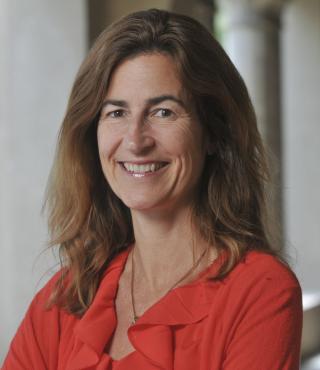As Dr. Francis Collins prepared to retire as director of the National Institutes of Health at the end of 2020, he reflected on lessons learned through steering the agency through the COVID-19 pandemic. While he was impressed by the speed at which scientists developed vaccines to protect against the novel coronavirus, Collins said he was struck by the tens of millions of Americans who chose to eschew this protection.
“Maybe we underinvested in research on human behavior,” Collins told PBS News Hour journalist Judy Woodruff. “I never imagined a year ago, when those vaccines were just proving to be fantastically safe and effective, that we would still have 60 million people [in the United States] who had not taken advantage of them because of misinformation and disinformation…. We have lost so much as a result of that.”
Since the first cases of COVID-19 were identified in late 2019, the virus has affected the lives of nearly every person on the planet. More than 310 million people globally have been sickened with the virus and 5.5 million have died as of January 2022. Public health measures such as vaccination and masking have become politically charged.
How people have responded to this rapidly changing health crisis provides insight into the ways that people make decisions, alter their behavior, and respond to other major threats, such as climate change. More than two dozen scholars took part in a conference on these topics in a virtual event hosted by the Hopkins Business of Health Initiative. The event, Experimental Insights from Behavioral Economics on COVID-19, was organized by Mario Macis, PhD, economics professor at the Johns Hopkins Carey Business School and Matteo Galizzi, associate professor of behavioral science at the London School of Economics.
Keynote speaker Cass Sunstein, the founder and director of the Program on Behavioral Economics and Public Policy at Harvard Law School, explained that humans are “imperfect choosers.” People are subject to inertia and reluctant to change patterns of thought and behavior. They are biased toward the present, giving precedent to the immediate future. They harbor unrealistic optimism, struggle to understand risks and try to avoid losses of things they find rewarding.
These patterns have stymied vaccination efforts, Sunstein said. People avoid or put off getting vaccinated against COVID-19 because they are complacent and assume that being young and healthy will protect them against the virus. Some hesitate to get the vaccine because of distrust— either with the medical establishment, pharmaceutical companies or politicians. And for some the barriers to getting the vaccine are too high. It might be difficult to get an appointment, travel to the appointment, or take time off from work.
Sunstein described the F.E.A.S.T. model of behavior change– Fun, Easy, Attractive, related to Social norms and Timely– and enumerated how it could be used to encourage greater uptake of COVID-19 vaccinations. An “enabling environment,” in which getting a vaccine is easy, quick and convenient would eliminate many barriers, such as mobile vaccine clinics that travel to residential areas. Emphasizing social norms by demonstrating that most people are getting the vaccine would surmount complacent attitudes and distrust.
A second keynote speaker, Katherine L. Milkman, PhD, professor of operations, information and decisions at the Wharton School of Business at the University of Pennsylvania, presented data from a mega study looking at factors that influenced people to get a flu vaccine– and is applicable to COVID-19 vaccine uptake. Milkman noted that just half of Americans get the flu shot and, like the COVID-19 vaccine, there is broad community benefit when people get vaccinated against the flu.
Milkman and her team experimented with different types of text nudges that participants received from either their primary care doctor’s office or their preferred pharmacy. They found that reminders such as “a vaccine has been reserved for you,” made people significantly more likely to get a flu vaccine at a doctor’s appointment. Messages from the pharmacy informing people that getting a flu shot would protect their family and friends also led a greater percentage of participants to get vaccinated.
The final keynote speaker, George Lowenstein, PhD, Herbert A. Simon University Professor of Economics and Psychology at Carnegie Mellon University, applied some of the lessons learned from the COVID-19 pandemic to another looming crisis: climate change. Lowenstein noted that people quickly adapt to changing circumstances, which has both positive and negative ramifications. When people become accustomed to the troubling news about climate change, they can lose sight of the gravity and urgency of the problem. Conversely, that same ability to adapt can lead people to quickly habituate to behavior changes that will help ameliorate climate change, such as a carbon tax.
“Behavioral economics and public policy should support and complement the substantive policies that are critically needed,” Lowenstein said.

